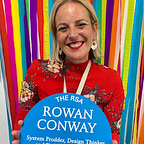Citizens acting for the common good in Birmingham
Saidul Haque Saeed, Senior Organiser at Citizens UK in Birmingham, tells his story of citizen engagement in the city.
“We are citizens from diverse communities acting together for the common good. Citizens UK is about making politics real. People might say they’re not interested in politics, but they are when they know it’s about family and your pay and feeling safe on the street.
Citizens UK West Midlands was founded in 2013. We are a non-partisan organisation of member faith, education, trade union and community institutions, and our membership ranges from universities to local community groups, and everything in between. We do not support any political party, but we take voting and democracy very seriously. We are citizens from diverse communities acting together for the common good. Our mission is to build the capacity of people to act for what matters to them, their families and institutions.
We are all about people and their stories. We co-create our priorities around three key considerations — firstly, what issues are people’s stories bringing up, and are these stories from real-life or something taken off Twitter; secondly do we have enough people who would come out and join an action team to make that priority happen, people who would turn over every stone and use every bit of their being to find capacity, resources and budget; and thirdly who wouldn’t come out, or who wouldn’t think of themselves as important enough to tell us their story, and how can we build capacity and grow that inner sense of self, and sense of leadership in those people?
A lot of decisions affecting my neighbourhood in Birmingham seem to be made elsewhere. Where I live you’re likely to die ten years earlier than other more affluent suburbs. During the 2011 riots, our area was heavily policed, but there wasn’t one incident here. I think it was less about the policing and more about some of our community leaders going round and having a cup of tea and a custard cream with some of the young gang members. They promised they wouldn’t go out and they didn’t. We’ve had a lot of success with community driven responses to problems that regular services just can’t cope with, from working with schools to hold monthly housing surgeries and in persuading local shops and businesses to act as safe havens to make neighbourhood streets safer, to bringing council officers and schools together to match local parents to jobs, to one community leader donating a second home as emergency accommodation for sex-workers. This type of contribution recognises that you don’t need to join a formal group to express your citizenship. People don’t have time to join something and be a secretary or a treasurer, they just want to help.
In 2014, we persuaded NHS commissioners to ensure 16 and 17 year-olds won access to specialist mental health services in Birmingham, after those services got caught in a contractual shake-up between the mental health trust and the CCG. In 2015, we launched a national campaign to resettle Syrian refugees from UN camps, securing a pledge from Birmingham City Council to resettle 50 refugees. In 2016, the council pledged to resettle a further 500 refugees.
Our Mayoral Assembly event in March brought together 968 people — citizens — in a hall in central Birmingham, 200 of which were local school children. Our best citizens are our ten year-olds. They are fearless talking to politicians and people in positions of power. One of the children wrote to the Police Commissioner for the West Midlands and invited him to come to the school assembly, and of course the Police Commissioner had to come. These are our young leaders, putting the powerful on the spot, but in a respectful way.
Using our co-creation process, we determined two priorities for the Mayoral Assembly — Families Better Off and Inclusive West Midlands. Our concept of inclusion is not just about the newest communities in Birmingham, but communities who have been here for generations and who may for whatever reason feel forgotten by the council and city leadership. Candidates were asked to publically commit to a series of propositions within our priority areas. Both mayoral candidates committed to appointing a cabinet member for social inclusion, which we acknowledge is by no means a cure-all, but which is a big step in the right direction.
We’re excited about devolution and what it means, if what it means is local control of budgets and an opportunity for citizens to decide how to shape spending priorities. If it comes with transparency and accountability, and if the decision making happens within touching distance, that would work for us. This is a new type of politics which is about relational — not transactional — power. We are all about stories, and this is the next part of ours.”
